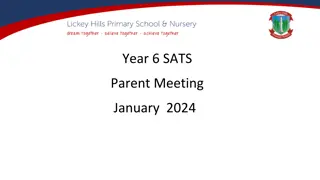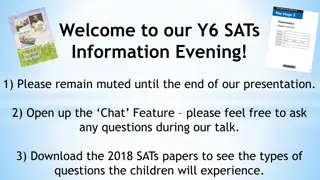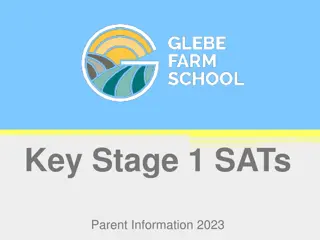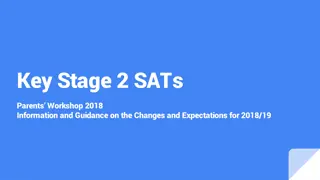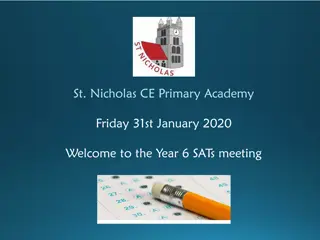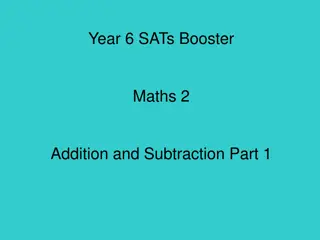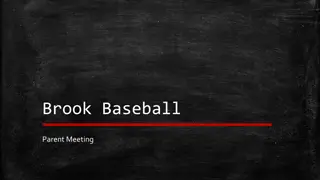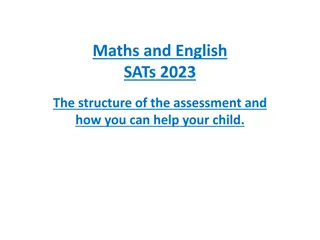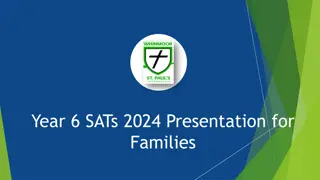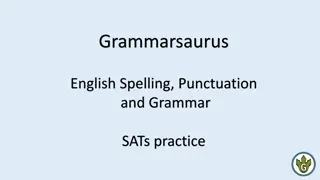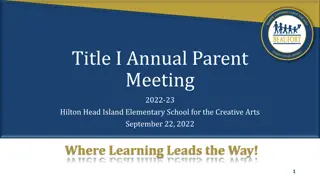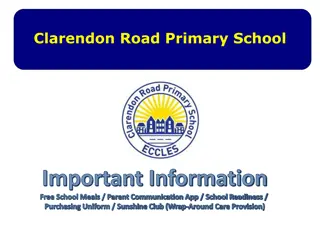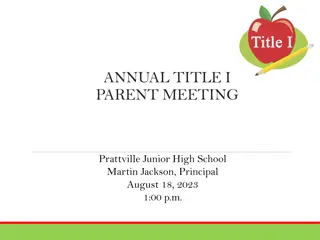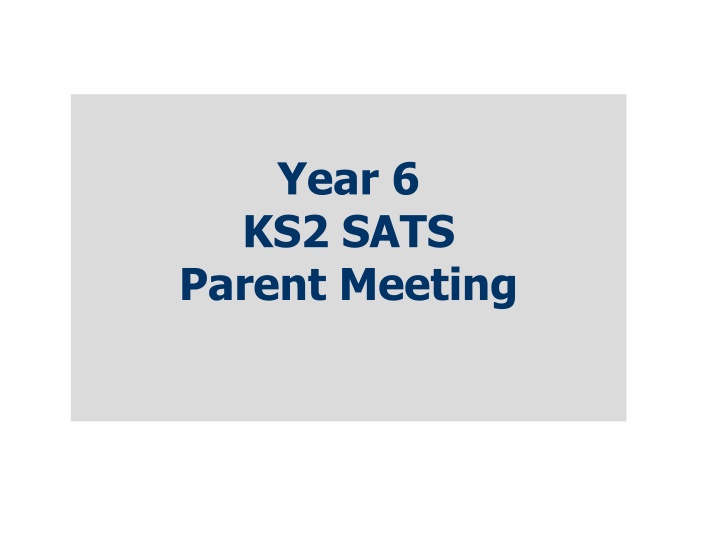
Complete Guide to Year 6 KS2 SATs Tests and Timetable
Prepare your child for Year 6 KS2 SATs tests with this comprehensive guide covering the subjects, test schedule, and detailed information on each test component. Understand the testing process and how results are utilized by schools for children's progression.
Download Presentation

Please find below an Image/Link to download the presentation.
The content on the website is provided AS IS for your information and personal use only. It may not be sold, licensed, or shared on other websites without obtaining consent from the author. If you encounter any issues during the download, it is possible that the publisher has removed the file from their server.
You are allowed to download the files provided on this website for personal or commercial use, subject to the condition that they are used lawfully. All files are the property of their respective owners.
The content on the website is provided AS IS for your information and personal use only. It may not be sold, licensed, or shared on other websites without obtaining consent from the author.
E N D
Presentation Transcript
Year 6 KS2 SATS Parent Meeting
Who does the KS2 tests? Statutory Y6 pupils as part of the National Curriculum assessment programme. Test results are used by secondary schools to group children and to predict their GCSE grades. Children undertake tests in two core subjects: English and Maths.
Timetable Monday 13th May - Thursday 16th May. 9:30 10:45 11 - 12 Grammar, punctuation and spelling (paper 1:GPS) Grammar, punctuation and spelling (paper 2:Spelling) Monday 45 min Reading 60 min Maths (paper 1:Arithmetic) 20 min Tuesday Maths (paper 2:Reasoning) Wednesday 30 min Maths (paper 3:Reasoning) 40 min Thursday 40 min Writing is assessed using evidence collected throughout Year 6. There is no Year 6 SATs writing test. 3
Monday - Grammar, Spelling and Punctuation One paper for grammar/punctuation (45 minutes) One paper for spelling. This test focuses on: Grammatical terms/ word classes; Functions of sentences; Combining words, phrases and clauses; Verb forms, tenses and consistency; Punctuation Vocabulary Standard English and formality Spelling
Grammar and Punctuation
Grammar and Punctuation
Spelling There are 20 spelling sentences. The spellings are tested within the context of a sentence.
Tuesday - Reading Paper 60 minutes Measures the children s comprehension of age-appropriate reading materials Three different set texts for children to read. May be non-fiction, fiction or poetry. The test covers the following areas: Explain the meaning of words in context; Retrieve and record information Summarise main ideas from more than one paragraph; Make inferences from the text Predict what might happen from details stated and implied; Identify/ explain how meaning is enhanced through choice of words and phrases; Make comparisons within the text. 8
Wednesday Arithmetic Paper 40 marks and lasts for 30 minutes. If a pupil requests it, a question may be read to them on a 1:1 basis. The teacher can read words and numbers but not mathematical symbols. This ensures that pupils are not given an unfair advantage by having the function inadvertently explained by reading its name.
Wednesday and Thursday Reasoning Papers
How we are preparing the children for How we are preparing the children for SATs: SATs: Reviewing past papers with the children Small group teaching/1:1 support where applicable Booster sessions Homework packs Spelling & Grammar sessions Knowing routine/expectations of the week
How you can best support your children at How you can best support your children at this time: this time: Early to bed In school every day on time 8.40am on time 8.40am Healthy breakfast provided Supporting with homework this is tailored towards your child's gaps Keeping your children calm Giving them time to relax Keep revision light. Going over key skills is a good way to keep revision light.


